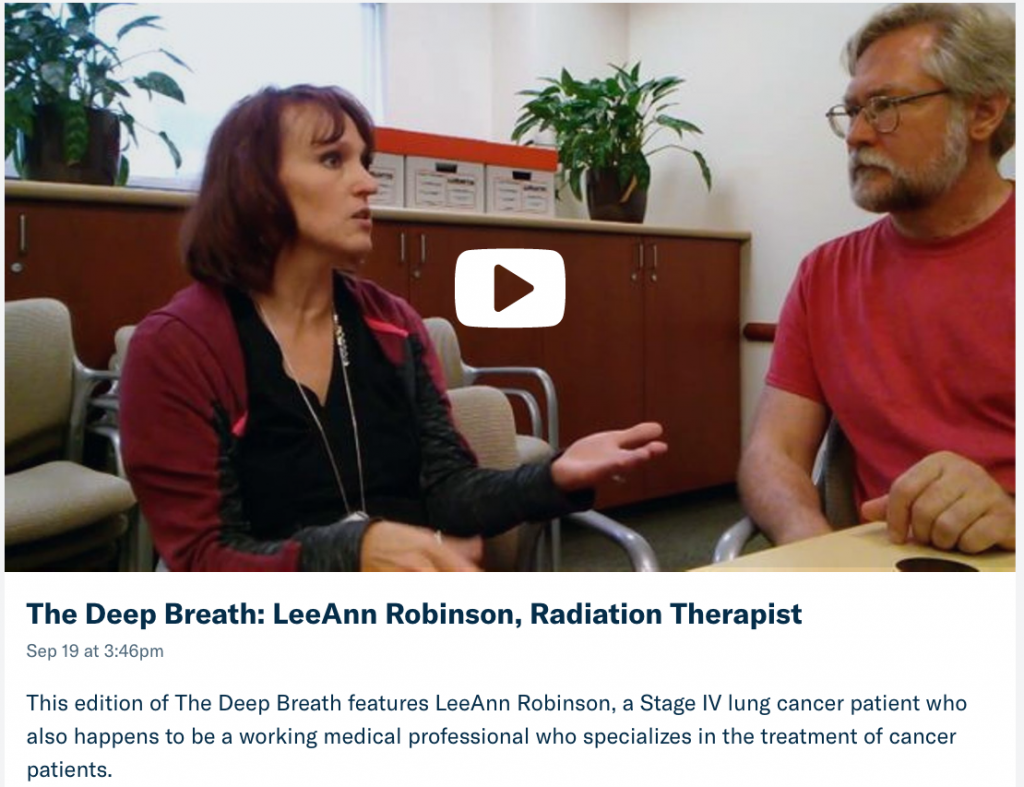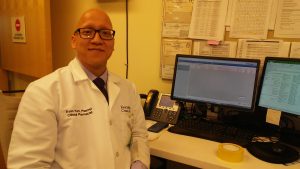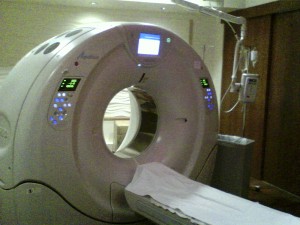 I’ve been told on more than one occasion that it should not be my problem, that I should not feel obligated to hold somebody’s hand when I tell them about my “health condition,” and that I cannot be responsible for another person’s reaction to my disease. But I also consider the reality that most people know someone, quite often family or a close friend, who has struggled with a form of cancer. Depending on where you get your statistics the numbers vary slightly, but no matter which source you use the bottom line is that over a third of us develop some form of cancer. That means out of every ten people you know, three or four of them are likely to have cancer at some point in their life. It is no surprise, therefore, that on my street alone I know of seven patients — and I should stress that those are only the ones I know of within less than two blocks, not necessarily the absolute total for the street. Also, I’m not particularly social or friendly, in case that is relevant to knowing what neighbors are up to. In other words, there are probably more of us on this stretch already. Continue reading Dropping the Cancer Bomb
I’ve been told on more than one occasion that it should not be my problem, that I should not feel obligated to hold somebody’s hand when I tell them about my “health condition,” and that I cannot be responsible for another person’s reaction to my disease. But I also consider the reality that most people know someone, quite often family or a close friend, who has struggled with a form of cancer. Depending on where you get your statistics the numbers vary slightly, but no matter which source you use the bottom line is that over a third of us develop some form of cancer. That means out of every ten people you know, three or four of them are likely to have cancer at some point in their life. It is no surprise, therefore, that on my street alone I know of seven patients — and I should stress that those are only the ones I know of within less than two blocks, not necessarily the absolute total for the street. Also, I’m not particularly social or friendly, in case that is relevant to knowing what neighbors are up to. In other words, there are probably more of us on this stretch already. Continue reading Dropping the Cancer Bomb
Tag Archives: Blogs
Some Thoughts on Death and Dying
The past few days have been interesting, in the way that might make a person both sad and angry, and hopefully also touch into a compassionate spot. After a lot of attention had been given to the hurricanes that battered our nation last month, highlighting both the devastation of nature and human resilience, it seemed that we were due a period of celebration. Instead, music icon, Tom Petty, died (prematurely reported, retracted, and ultimately, with some finality, reported again). And just before that, on the last night of a big music festival in Las Vegas, a so-called “lone wolf” gunman managed to use a stash of roughly 20 weapons (at least some of which were modified to be more deadly) to kill in the neighborhood of 60 innocent people, wounding hundreds of others. He did this from a hotel room in a very fancy casino across the street, using long-range rifles. It’s enough to get a person ruminating on mortality. As if living with stage 4 lung cancer wasn’t enough.
Before I get too self-indulgent, however, I should put my thoughts into perspective. Death doesn’t bother me so much; I do not hold onto a fear of dying and I cannot recall a time when I did. But I do have a deep and consistent anger about enabled murder, preventable deaths and injuries (both physical and psychological), and the lack of public will to address the underlying issues that allow such things to continue happening. And in that regard, I suppose, I do have a fear of getting shot. In almost 50 years, I’ve been lucky enough to have been directly threatened with a gun only once — but I’ve still been threatened with a gun. It is hard not to think about these things when a mass shooting happens just a few blocks away from where you had been lying poolside about a month earlier. Continue reading Some Thoughts on Death and Dying
Spoiler Alert: Side-Effects Show Up
It has been over two weeks since I began taking my new drug, afatinib. Over two weeks of feeling good, feeling like the chemo has been thoroughly flushed from my system even as I have diligently taken these new pills, feeling the best that I have in three years. I have been keeping a journal this time, chronicling how my body is responding each day, trying to pave the way for a better understanding of how to live with this new treatment. For the first week, anyway, it almost seemed like it was going to be too easy.
There are two weeks of video updates on my Patreon feed, talking about how great I feel and wondering how bad the side effects will be once they really kick in. I had been prepped by my oncologist that it was very likely that I would experience worse side effects than I had with the chemo I had been taking. This was based on how well I tolerated pemetrexed, the chemotherapy drug that had kept my cancer at bay for so long, but not so much on patients in general having a particularly tough time on afatinib. Which is not to suggest that I expected a walk in the proverbial park with this new drug.
Still, the first week was amazing. It was almost like I was taking nothing at all. Sure, there was some digestive stuff going on, but nothing outside of the realm of what I would have been used to in a previous life if I decided to live off of bean burritos for a few weeks. And I love a good burrito, so it would be worth it. But by day eight, I realized that the side-effects of the drug were presenting themselves quite visibly. Continue reading Spoiler Alert: Side-Effects Show Up
Sealing the Roof
Which, in this case, is a roof sealant.

Last winter, we enjoyed the heaviest amount of rainfall that Los Angeles has seen in years. Although not enough to entirely counter the trend of drought that has plagued the region, it did refill reservoirs and contribute to record snowpack in the mountains, dramatically relieving the strain on water reserves. However, this exceptional amount of rain also managed to seep through the apparent (but not obvious) cracks in our roof, puckering the paint in our kitchen ceiling. While the roof remains structurally sound, the asphalt sheeting is showing its age and beginning to crack under the incessant heat of the sun.
When a minor leak from our water heater led to a small amount of construction in our kitchen, we ended up repainting the entire room and fixing the ceiling in the process. Of course, that will look fabulous up until the time when we have another multi-day deluge. Continue reading Sealing the Roof
Interview With Radiation Therapist Turned Stage IV Lung Cancer Patient
And if I’m really lucky, she lets me interview her for my podcast:

If this post resonates with you, please consider supporting my work through a monthly subscription to my feed on Patreon, or a one-time donation through PayPal. Follow me on Twitter, Facebook, Tumbler and many other fancy social sites or apps. Please share my posts to groups you are involved with on Reddit or Google+ or anywhere else that you feel it will help or enlighten or inspire another reader. (Sharing buttons are below the post!)
Thank you!
Inside a Chemo Clinic Phamacy

Before I concluded my chemotherapy, I sat down with the pharmacist who had mixed my drugs for nearly three years and recorded our conversation for my erstwhile podcast, The Deep Breath. It offered a revealing look inside the process of administering chemo, as well as other drugs used to treat cancer patients.

I did not realize that I was one of the longest consistent patients currently receiving treatment at this facility. Although I was preparing to call chemo quits after slightly more than 2.5 years, I knew of at least one patient who had been on the same basic regimen as me for around seven years. But that had been before my time. As I settled in to interview my pharmacist, he revealed that he was not aware of any patient at the clinic who had been receiving chemotherapy as long as I had been since he started the job. I appreciated the special distinction, even though I had mixed feelings about it. Continue reading Inside a Chemo Clinic Phamacy
Side-Effects I Won’t Miss: The Chemo Diaries, a Coda
My treatment is far from done, my “cancer journey” only partly traveled, but I am saying goodbye to chemotherapy — at least for now. Forty rounds of infusions came to an end last week and, though my brain is fatigued and my body is a bit of a mess, I’m taking a moment to appreciate the things I definitely will not be missing.
Topping my list, even above the malaise and nausea that sometimes follows my treatment, is:
#1, The Uncontrollable Gag Reflex.
It’s been a nasty thorn in my side, that gag reflex. Just brushing my teeth will set it off, causing me to wretch over the sink, even if it has been a long time since I ate. And scents of any kind have been known to cause gagging, too — and not just the smell of rot or the cat box or whatever was thrown in the garbage can the night before, but, yeah, all of those, too. Goodbye, gag reflex!
#2, Grimy, Oily-Feeling Skin
The days following my infusion are better with frequent showers. As I purge toxins, I always imagine that I smell horrible — and, in fact, I often cannot stand my own odor. But beyond that, my skin just feels gross. I’ve had the weirdest blemishes, well beyond any teenage acne I experienced in my wayward youth, and it wasn’t always easy finding soaps that I could tolerate in the enclosed space of a shower. Waking with a slick layer of grease on my face and a sticky sensation all over my body (worse on hot days, of course), mixing thick perspiration and whatever else is pushing through my pores, is an experience I am more than ready to be done with. Continue reading Side-Effects I Won’t Miss: The Chemo Diaries, a Coda
Common Sense, Clarity and Wellness Warrior Lies
As long-time readers know, I take issue with a number of high-profile “wellness warriors” and anti-science advocates who claim to offer “natural,” “holistic,” or simply “alternative” treatments that can cure cancer or prevent it entirely. Chief among these are Chris Wark and Ty Bollinger, two people with absolutely no scientific or medical training and tons of bad advice. They are part of a large network of disreputable and largely discredited hucksters, many of whom get by on their claims by offering just the tiniest shred of truth mixed in with their hyperbole and insidious messages. They thrive in our increasingly anti-intellectual culture, where headlines and sound bytes sway their customers and their “fan base” into believing that there is substance to their messages. This is why, more than ever, it is essential to take a critical approach to all the medical headlines that are presented, and especially those making extraordinary claims.
The well-established and professionally vetted website, Healthline, has a very good primer on the subject of spotting fake medical news. It could hardly be more topical. There is nary a day that goes by when some website or other isn’t making absurd claims about the latest health craze or danger. Whether it is bloating the risks of GMO foods or misrepresenting the cancer risk from eating red or processed meat, there are more sources out there in the ether intent upon cherry picking data or simply removing it from context in order to sell their point than there are serious outlets for the reporting of science news. Part of the problem with this is that science news isn’t usually considered very sexy or commercial, but a bigger problem is that it is generally difficult for most people to fully understand.
And capitalizing on that, we have opportunists like Chris Wark, a self-proclaimed guru on defeating cancer without chemotherapy. Duly note, of course, that Mr. Wark was cured through surgical intervention and, while chemotherapy was recommended as an adjunctive treatment to lower the risk of future metastasis, there was no indication that he had any actual, existing metastases that needed treatment. To put it bluntly, he was one of the lucky colon cancer patients who had it all taken out without any recurrence. This had nothing to do with whether or not he received chemotherapy, and there is no way of knowing how he would have responded to such treatment or whether his “lifestyle” choices have had any bearing whatsoever on his post-surgical health. Continue reading Common Sense, Clarity and Wellness Warrior Lies
Chemo and I Had a Pretty Good Run

Because CT scans are essentially three-dimensional, but are viewed on two-dimensional screens, comparisons between scans are inherently imprecise. The angle of a subject’s body, how inflated the lungs were, the position of the subject within the imagining chamber, all figure into subtle differences between the final scans. On top of that, because the images are basically multitudes of cross-sectional snapshots, a comparison must be made by selecting the closest approximation to the “same” image between scans from different times. I’ve looked at lots of these — in fact, I keep digital copies of all my scans for reference or posterity — and I’ve used the tools to line up and measure my tumor as best I can.
And in two dimensions, at the standard viewing cross-sectional approximation, my mass looks very similar from scan to scan, every three or so months since this process began. My chemotherapy was clearly doing what it was intended to do, which was to prevent progression of the disease. Progression is generally defined in terms of the length of the tumor, but we all know that tumors are bundles of cells that grow and change along more than just one axis.
I was never under any illusion that the chemo would cure me — there is no official cure for Stage 4 Lung Cancer. Any time that the chemotherapy could afford me by maintaining stasis has been considered a luxury and at over two and a half years on this particular regimen, I have been the longest continuous success case that many on my medical team have known. So the next time I see most of them will be a special, bitter-sweet occasion.
Because the time for change has come. Continue reading Chemo and I Had a Pretty Good Run
The Meaning of Normal
If this post resonates with you, please consider supporting my work through a monthly subscription to my feed on Patreon (which includes an exclusive podcast), or a one-time donation through PayPal. Follow me on Twitter, Facebook, Tumbler and many other fancy social sites or apps. Please share my posts to groups you are involved with on Reddit or Google+ or anywhere else that you feel it will help or enlighten or inspire another reader. (Sharing buttons are below the post!)
Thank you!
